Results
-
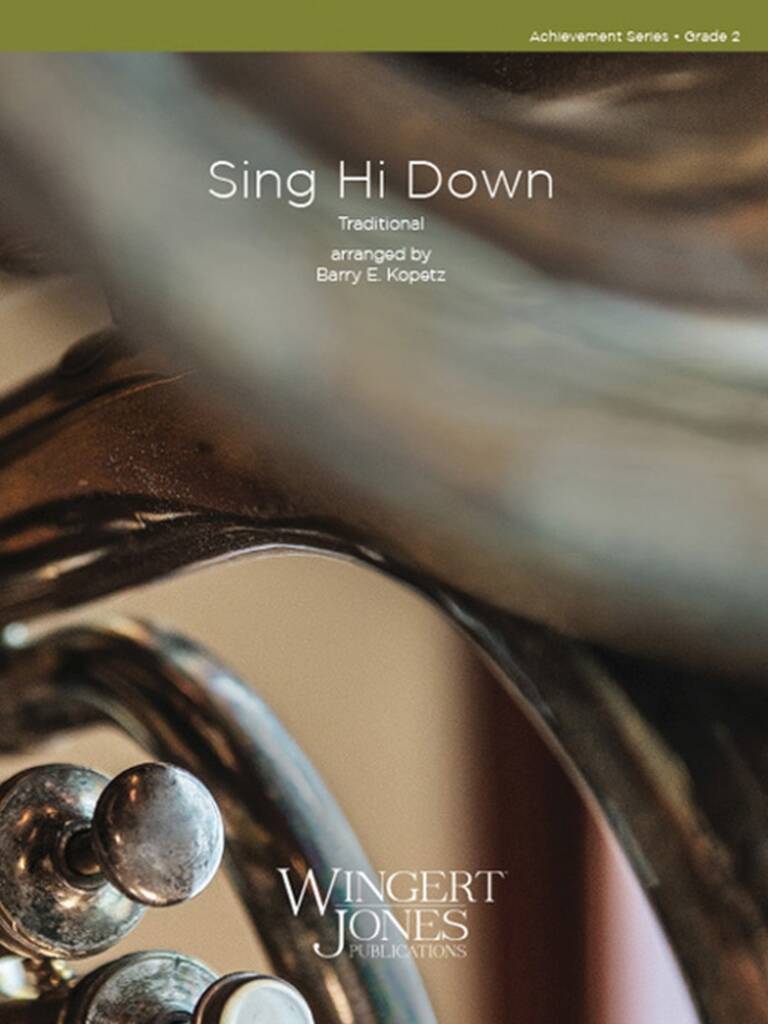 £71.50
£71.50Sing Hi Down - Barry E. Kopetz
The original title of this charming folk song is The Two Little Sisters, and it contains a chant-like phrase "sing hi down." This particular lyric is sung with great energy as it carries much of the joy that prevails throughout the song. After a majestic introduction, the piece begins in earnest at a brisk tempo with the melody combined with a lively off-beat accompaniment. Arpeggios emphasize the "sing hi down" portion of the theme and are followed by a brief dance-like interlude that leads to the close, capturing the essence of this joyful tune.
Estimated dispatch 7-14 working days
-
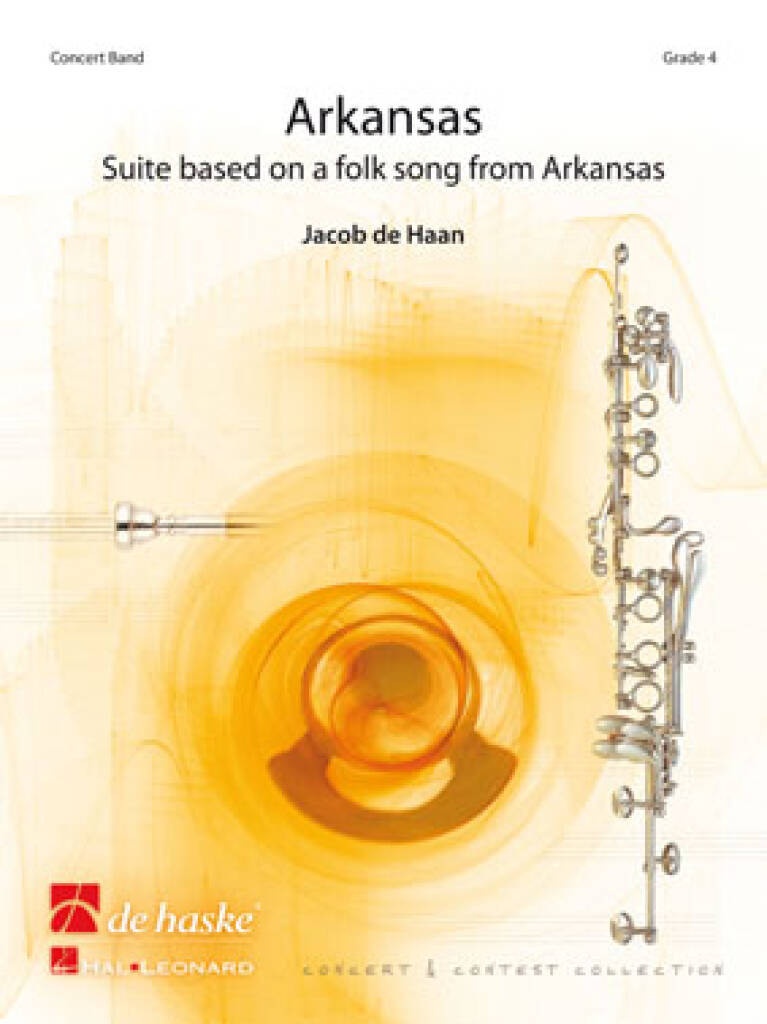 £154.99
£154.99Arkansas - Jacob de Haan
The American state of Arkansas is often called 'the natural state' and 'the land of opportunity.' This piece belongs to Jacob de Haan's series of musical montages depicting various states in the USA, including Dakota, Oregon and Virginia. Arkansas is a suite in three movements based on a well-known native American folk song. It appears as a ballade, variations and finally accompanies a jazzy rhythm. The folk song helps provide continuity throughout the three movements. A perfect addition to any concert.
Estimated dispatch 7-14 working days
-
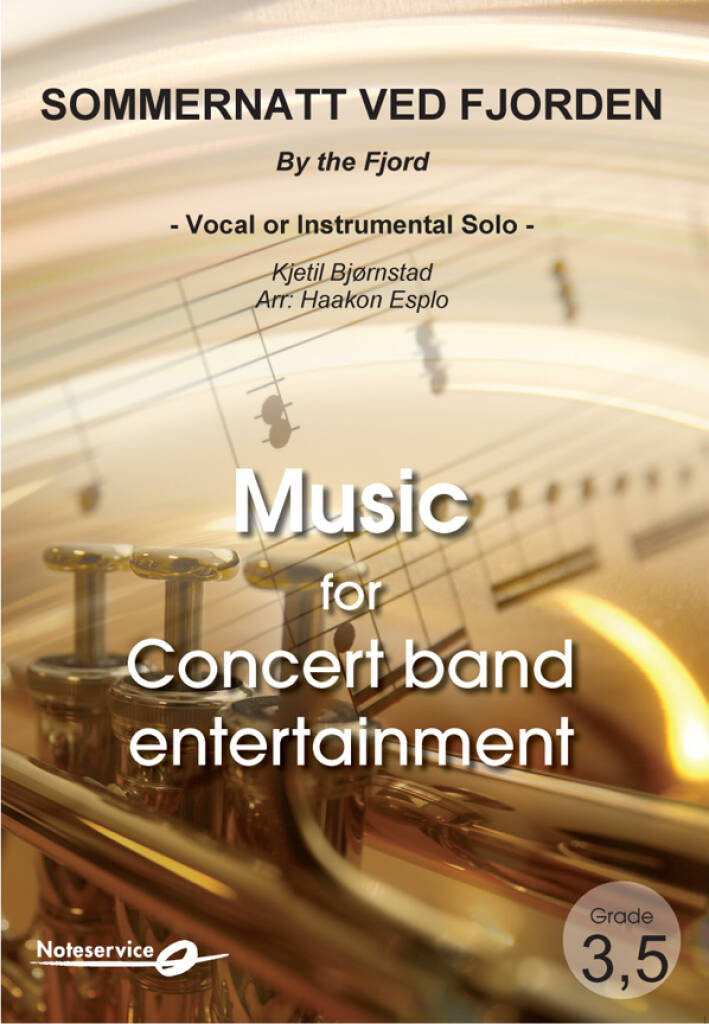 £149.40
£149.40Sommernatt ved fjorden - Ketil Bjørnstad
"By the Fjord" is written by the Norwegian composer Kjetil Bjrnstad and is the most famous song from the musical work "Leve Patagonia" which was published in 1978. The work is written as a modern suite about the Oslo Bohemians Hans Jaeger and OdaLasson sitting in a pram on the fjord a summer night. Odas sister sees the couple on the sea from her window and tells us the story.Kjetil Bjrnstad wrote "By the Fjord" in his house outside Tvedestrand early spring 1978. He was initially notfully satisfied and considered disposing it. The beautiful music has luckily made the song a classic in Norwegian music.To the conductorThis arrangement can be used with both vocal andinstrumental soloist. Its always a challenge toarrange songs with many verses that tells a story if it is to be played by an instrumental soloist instead of a singer. Because of that, please cut the repeats if it's performed without lyrics.Solo-parts included in the set: Vocal Flute Altosax Flugelhorn Euphonium - Trombone
Estimated dispatch 7-14 working days
-
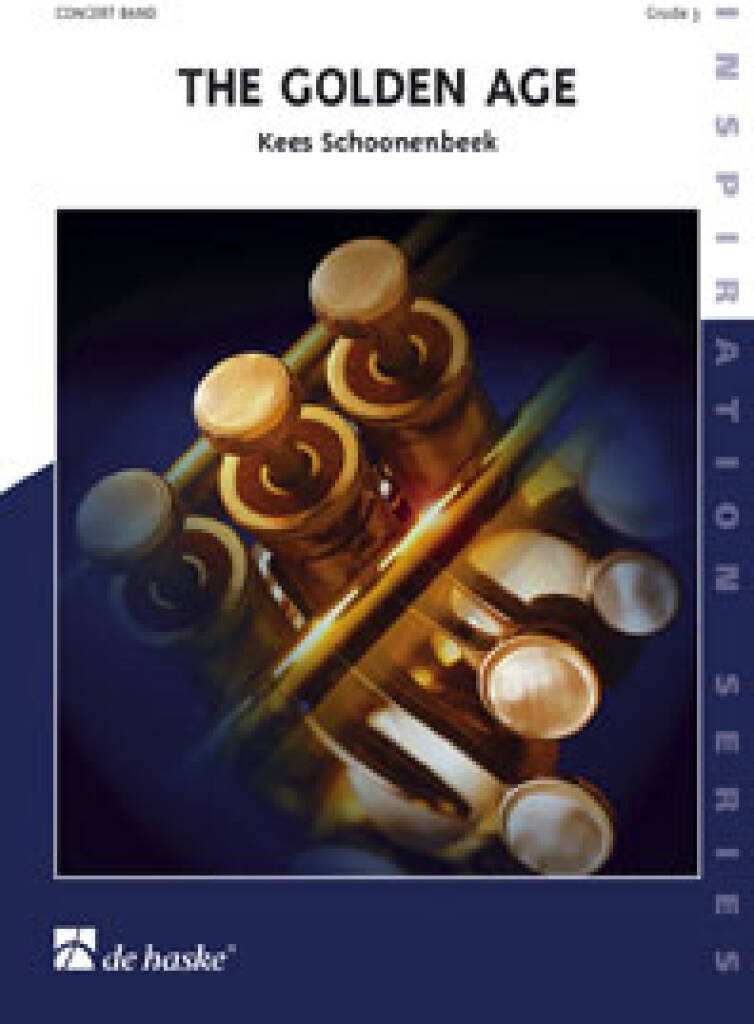 £139.99
£139.99The Golden Age - Kees Schoonenbeek
The Golden Age is a programmatic composition in four movements. I Overture For the Netherlands, the seventeenth century was a period of great flourishing in the fields of economy, culture and politics; thus it is called the Golden Age. Overseas trade boomed, and the Dutch East India Company (known as the VOC by the Dutch) was founded and expanded to become a powerful -and, at the time - modern enterprise. II Adis espaoles!(Farewell, Spaniards!) In 1567, the Spanish army invaded, led by the Duke of Alva. There was a fierce resistance against the Spanish tyranny; toward the end of the sixteenth century, the Dutch proclaimed theRepublic. However, the Spanish continued the war. Only with the Treaty of Mnster in 1648 did the Dutch get their much sought-after independence. This was also the end of the Eighty Years' War. III Rembrandt's Night WatchThe field of culture, particularly literature, painting, sculpture, architecture, the art of printing, and cartography developed fast. It was in the Golden Age that the celebrated painter Rembrandt van Rijn created his famous Night Watch. IV The Admiral Overseas trade entailed the colonization of large areas in Asia, from where precious products that yielded lots of money were brought in. Surrounding countries were also involved in such practices. Colonizers poached on each other's territories in the literal and figurative sense - in this context the Anglo-Dutch Sea Wars are legendary. The fourth movement starts with the English patriotic song Rule Britannia, after which the Dutch Admiral Michiel de Ruyter makes the English change their tune; one can even hear the roaring of cannons. When the smoke of battle has cleared, a small fragment of a Dutch song about Michiel de Ruyter appears, followed by a fitting closing.
Estimated dispatch 7-14 working days
-
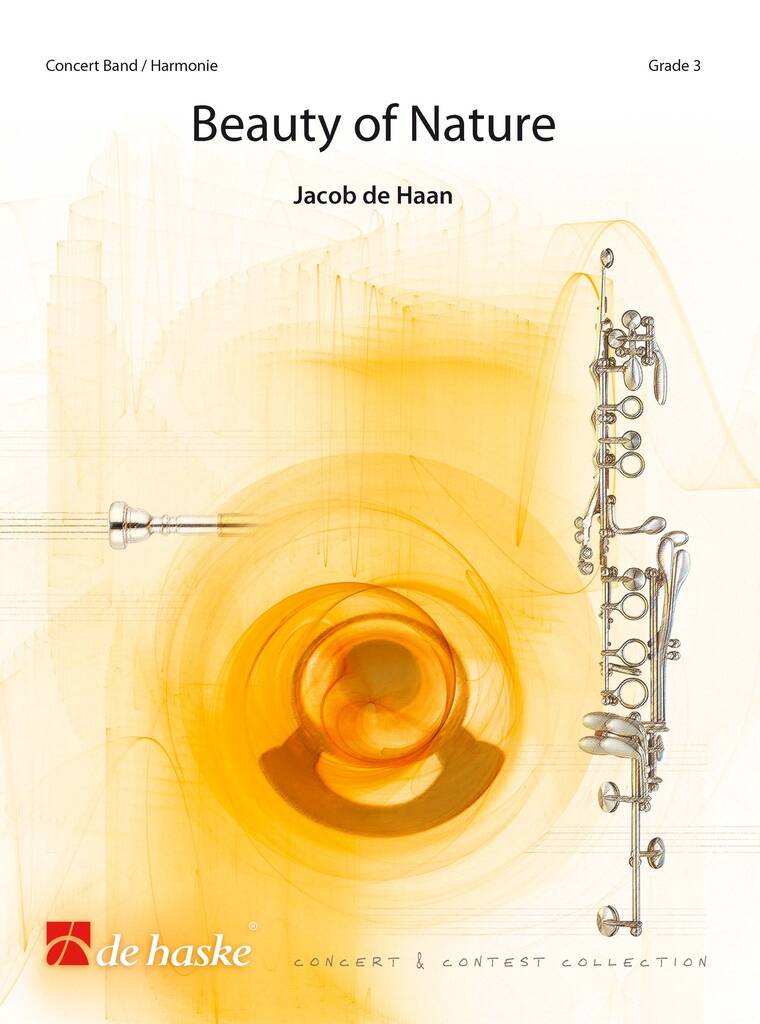 £94.99
£94.99Beauty of Nature - Jacob de Haan
This attractive work is about the Dutch province of Drenthe, a region where the beauty of nature flourishes. In Beauty of Nature, the composer reminisces about childhood holidays spent here with his parents. From bird sounds, via the regional song of Drenthe, and a children's song to wonderful tutti passages, this is a joyful piece of music for players as well as the audience.
Estimated dispatch 7-14 working days
-
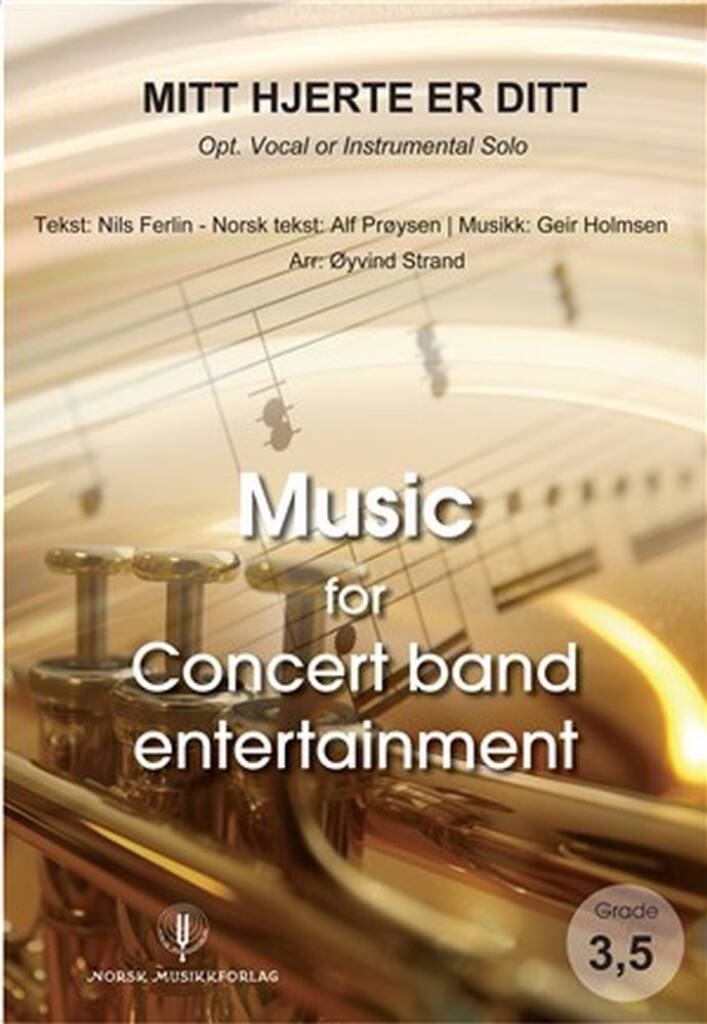 £127.30
£127.30Mitt hjerte er ditt - Geir Holmsen
"Mitt hjerte er ditt" ("My Heart is Yours") is primarily known with this Norwegian lyrics and melody from Maj Britt Andersen's recording of the song, first released in 1992. Andersen's husband, Geir Holmsen, composed the new music for this recording, a version that has since been performed by numerous other artists, including Anna of the North on "Hver gang vi mtes" in 2022.The lyrics are Alf Prysen's Norwegian translation of Nils Ferlin's Swedish text, originally written to a Swedish folk tune.This is an arrangement written for a vocal soloist and wind orchestra, but it can also be played with instrumental soloists or purely instrumentally. The song has only two verses, so the middle section of this arrangement is an orchestral verse where the melody begins in the lower instruments.
Estimated dispatch 7-14 working days
-
£64.90
BlimE! - Sveve hyt
BlimE! is a campaign by Norwegian Broadcasting Corporation (NRK) which goal is to promote friendship and care for each other. The slogan is "Say hello, be a Friend!" Each year, a new song is released together with a dance. The purpose is to strengthen the cohesions at schools. The BlimE! Song for 2023 is entitled "Sveve Hyt" ("Fly high") and performed by Martin Lilleberg.
Estimated dispatch 7-14 working days
-
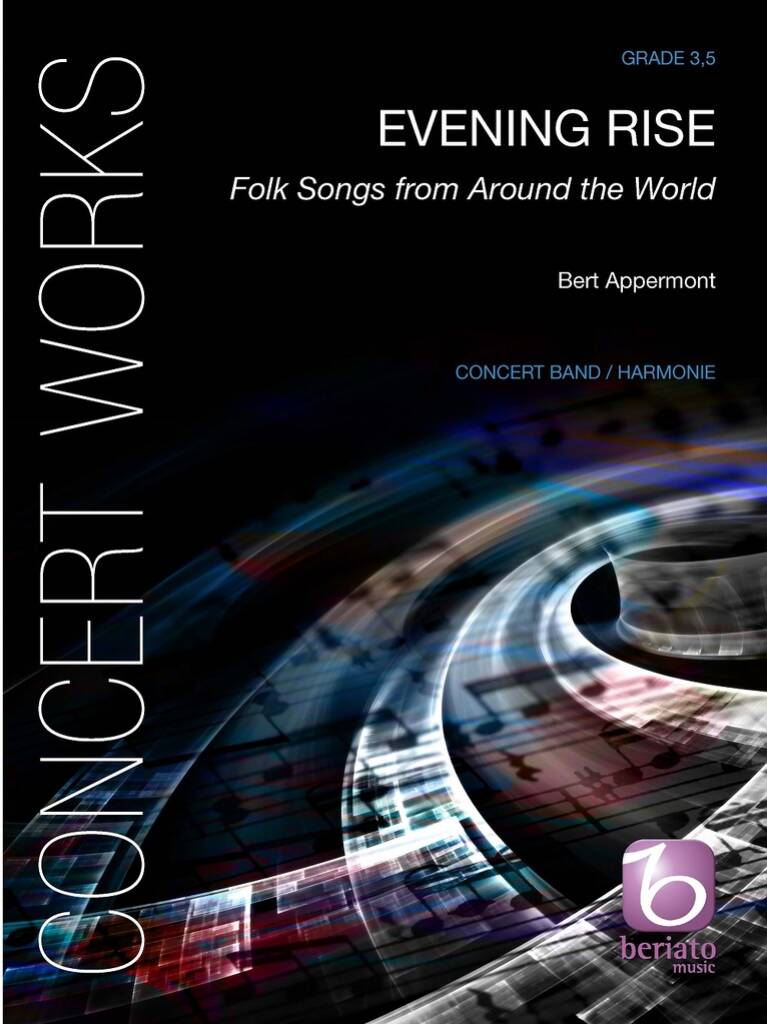 £102.99
£102.99Evening Rise - Bert Appermont
This work is based on five folk songs from different cultures. Each song brings its own atmosphere and character, giving rise to a musical journey across the world in one continuous whole. Featuring Evening Rise (America), Lo Yisa Goy (Israel), Sakura (Japan), Finnegans Wake (Ireland) and Siyahamba (South Africa). The Native American song Evening Rise functions as a sort of chorus and thus creates a certain unity; each time the melody is arranged in a different way.
Estimated dispatch 7-14 working days
-
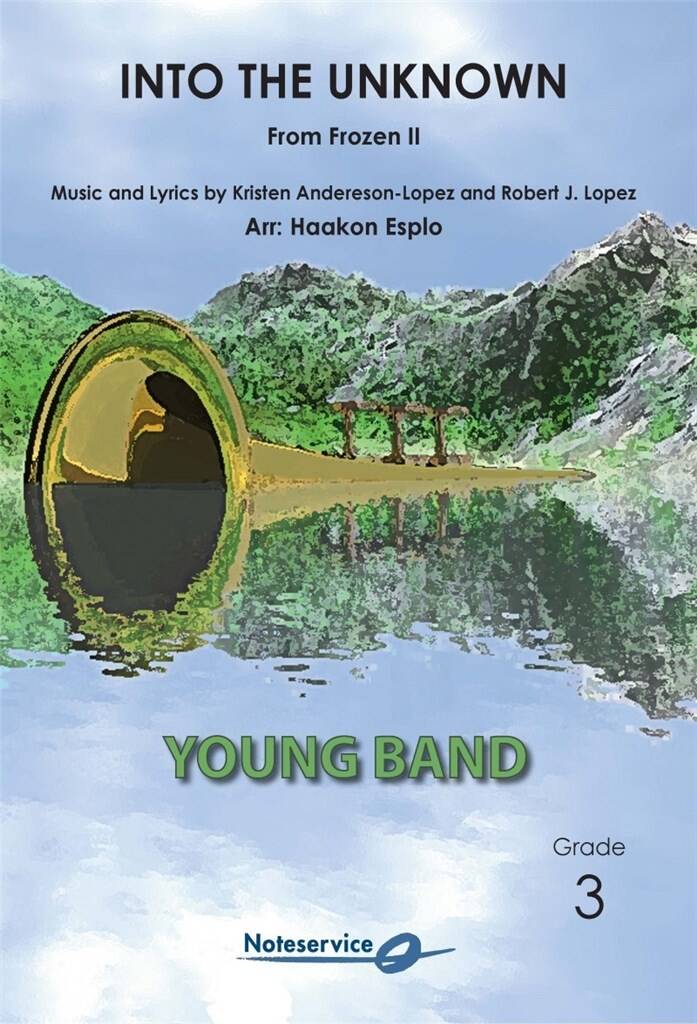 £115.60
£115.60Into the Unknown - From Frozen II - Kristen Anderson-Lopez
Composers Kristen Anderson-Lopez and Robert Lopez have once again written music for Disneys sequel film Frozen II after great success in 2013 with Frozen. Many will probably remember Let it Go which became a big hit from this movie. The new movie continue to follow the main character Elsa, who sings her amazing musical number "Into the nknown" in Frozen II. The song describes Elsa's inner conflict of choice to leave Arendelle or trace the source of a mysterious voice she continues to hear. The song is originally sung by Idina Menzel and the Norwegian artist Aurora and has elements and motifs inspired by Scandinavian herding calls. As always, the music is both magnificent and captivating and will surely be a hit for many years to come.
Estimated dispatch 7-14 working days
-
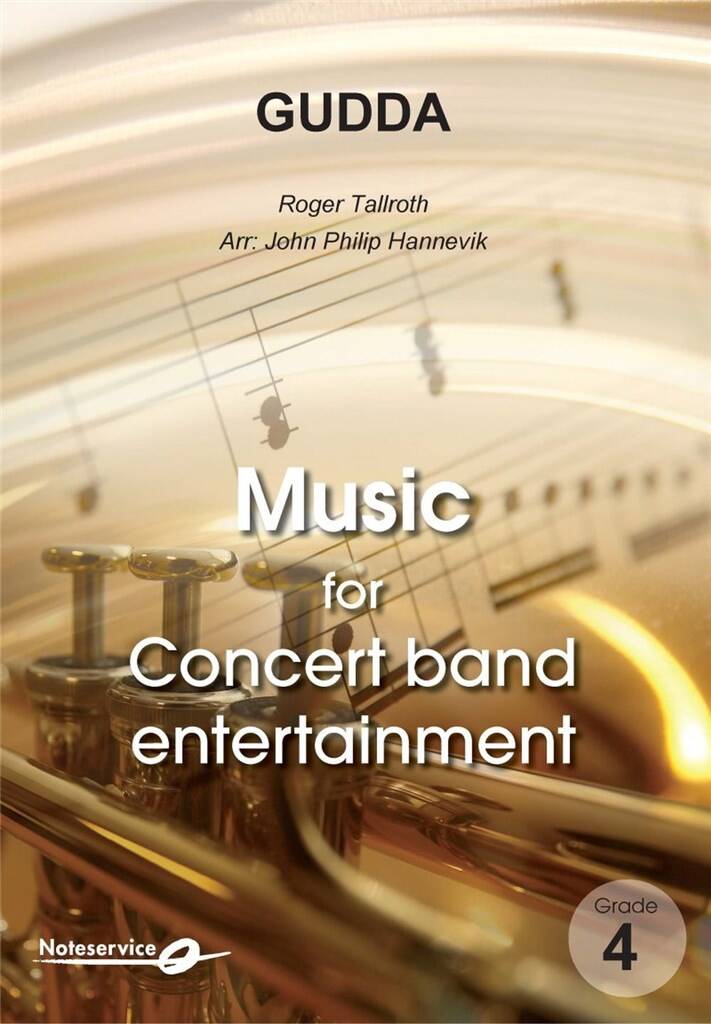 £149.40
£149.40Gudda - Roger Tallroth
"Vsen" ("commotion", "fuss", "ado") is a Swedish acoustic band consisting of three outstanding instrumentalists playing viola, 12-string guitar and nyckelharpa ("key-harp"). They have been touring together since 1989. The song "Gudda" is from a CD they released in 2017, and it is composed by guitar-player Roger Tallroth. The title refers to the song being (originally) in G-major and in "udda" (Swedish for "odd") time-signatures. Please, maintain a singing, legato style throughout.
Estimated dispatch 7-14 working days
